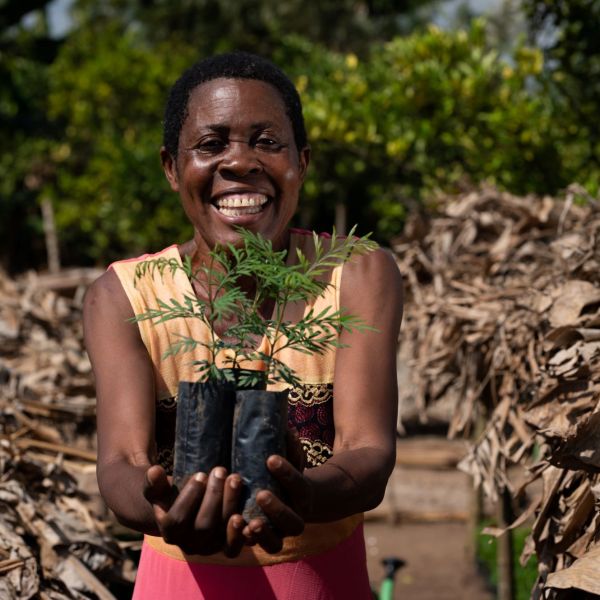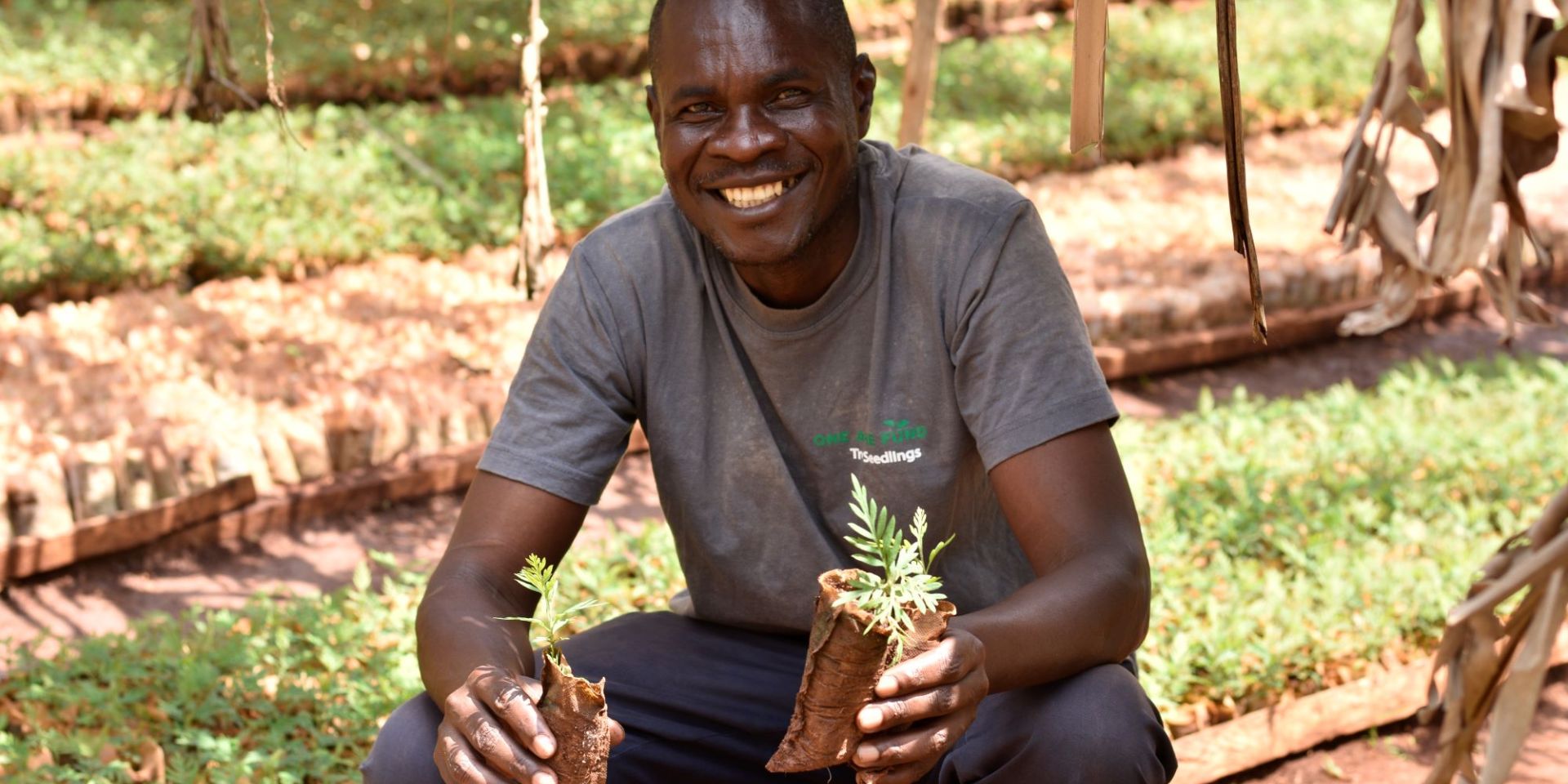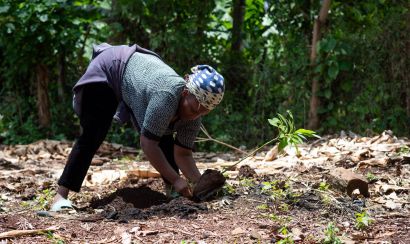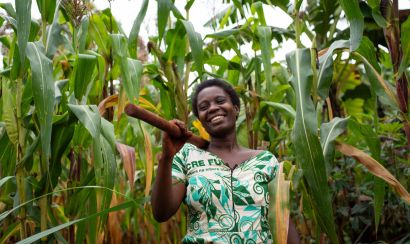How tree nurseries are changing fortunes in Kenya and Burundi
Inspired to do something, they embarked on a journey to become tree nursery managers, growing and supplying tree seedlings to their communities to help them build sustainable and resilient futures. For them and their communities, trees are #MoreThanATree.
For years, One Acre Fund has grown and supplied tree seedlings to farmers in rural communities in sub-Saharan Africa to encourage them to invest in trees for climate resilience and income diversification opportunities. Since 2021, we have evolved our model to include independently farmer-owned and run tree nurseries that grow seedlings for sale and distribution to farmers in their local communities.
These nurseries are mainly set up in the villages where farmers live and work and the owners and managers are recruited from among the farmers we serve. This community-led approach to increasing the number of tree nurseries on the continent aims to ensure that not only can reach as many farmers as possible in our efforts to support smallholder farmers to plant a billion trees on farms across sub-Saharan Africa by 2030, but that we're also directly benefiting rural farmers in the process by providing opportunities for entrepreneurship.
Encouraging smallholders to plant trees on their land has not always been easy - trees are often seen to compete with farming – but our tree program – delivered through our local network of field officers and the network of tree-nursery managers – provides training to farmers on the benefits of agroforestry (growing trees together with crops). We also regularly speak to farmers to make sure the mix of trees the tree nurseries offer consider local ecosystems and needs.
How farmer-run tree nurseries work
One Acre Fund provides nursery managers with the support needed to grow thousands of tree seedlings every few months. We provide the supplies to set up the nurseries and pay the nursery managers based on how many seedlings they successfully grow.
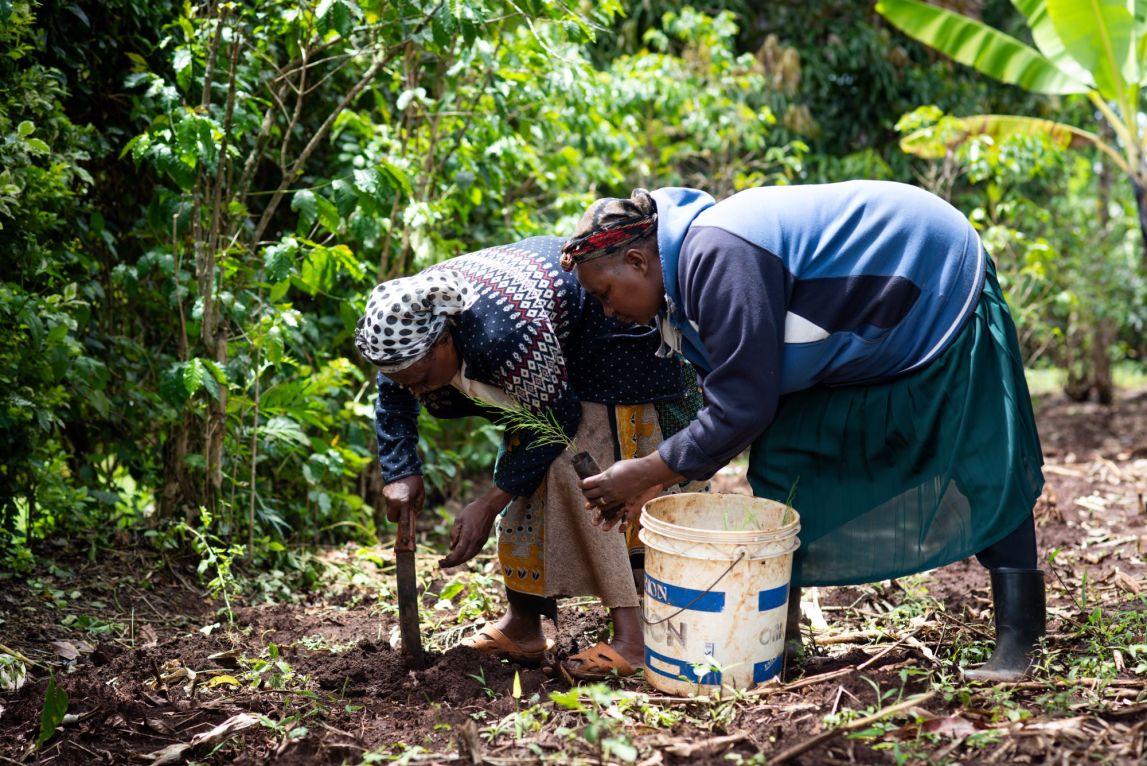
Eunice Nguu, a Kenyan smallholder and nursery manager from Embu County in the country’s Central region, says she has learned a lot since joining the program.
“I have learned how to mix the components into the sockets to develop healthy seedlings. I also learned how to maintain a healthy nursery by weeding, watering our seedlings, and doing everything at the right time; including transplanting for optimum seedling performance. And at the end of the season, we have a ready market to buy our seedlings,” Eunice says.
Once the seedlings are ready for market, our team links the nursery managers to a ready market of smallholder farmers. Farmers within the locality are primarily informed about the availability of tree seedlings through our field officers, who inform them of when and where to access the seedlings.
This collaborative effort ensures that tree seedlings are readily available within communities while creating an income source for nursery managers.
Climate and income resilience
For Wycliffe, running a tree nursery is more than a means to combat climate change. He has tapped into a new market, expanding his revenue streams beyond traditional crops.
“For all farmers who come to buy seedlings from me, they receive free Grevillea seedlings, whose value I recoup at a cost agreed to between me and One Acre Fund. So if I grow 200,000 seedlings, I can make Ksh400,000 (~$2,917 USD) in one season in total sales,” Wycliffe says.
For Eunice running a decentralized nursery has helped her diversify her income, mitigating the risks associated with fluctuating market prices or crop failure.
“It was especially dry this year. I lost my maize crop – which my family depends on for food. Then came the cold, which affected avocado and macadamia. During my time with One Acre Fund, I have learned to deal with climate change through tree planting. As a nursery manager, I get income from selling tree seedlings. When farmers plant the seedlings, they are giving back to the environment and improving soil fertility – trees like Grevillea, which enrich the soil and improve yields,” Eunice says.
Community engagement and knowledge development
In Burundi, Sylvie Nahimana and her husband, Gideon, who have been tree farmers since 2016, exemplify this community-driven approach. They recently started a decentralized tree nursery to share their tree knowledge with fellow farmers while ensuring that the entire community benefits from the seedlings they produce.
“My husband and I tend to the nursery daily, and then with other farmers joining twice weekly. When the seedlings are ready, each member will receive four trees,” Sylvie says.
Farmer-run tree nurseries have become a good addition to the communities we serve; offering economic stability, community engagement, and knowledge sharing, while the trees themselves offer a reliable way for rural farm families to build long-term assets and climate resilience.
Plant a tree now
Every tree planted is so much #MoreThanATree for the farmer who plants it.
